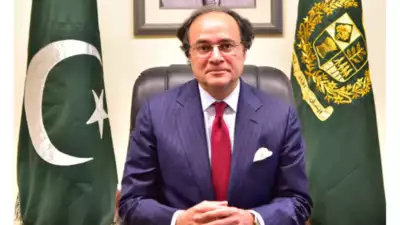ISLAMABAD: Finance Minister Muhammad Aurangzeb expressed confidence on Sunday that Pakistan is poised to secure an extended loan program with the International Monetary Fund (IMF), emphasizing its potential to bolster macroeconomic stability.
Speaking at a press conference in Islamabad marking the conclusion of the fiscal year 2023-24, Aurangzeb, alongside Prime Minister Shehbaz Sharif, conveyed optimism that the upcoming IMF program could be the country’s final engagement with the Fund. “From my perspective and that of the Prime Minister, we anticipate this to be the last IMF program. That’s our aspiration,” he affirmed.
President Asif Ali Zardari approved the government’s Finance Bill 2024 on Sunday, which includes significant taxation measures for the new fiscal year. The budget, presented two weeks ago, drew criticism from opposition parties, particularly the PTI, and coalition ally PPP.
In preparation for the IMF’s criteria, the government recently extended exemptions in specific sectors while introducing new tax measures to boost revenue in the upcoming fiscal year.
During a session in the National Assembly, opposition lawmakers, notably from the PTI, criticized the budget, alleging it was heavily influenced by IMF directives. Opposition Leader Omar Ayub Khan condemned it as “economic terrorism against the people.”
Pakistan is currently in negotiations with the IMF for a loan ranging from $6 billion to $8 billion.
Aurangzeb highlighted the importance of macroeconomic stability, particularly in light of Pakistan’s reliance on loans. “Maintaining stability is crucial. If we can’t repatriate dividends to investors, attracting additional investments becomes challenging,” he explained.
He also noted progress in clearing the State Bank’s backlog of letters of credit and investor dividends by late May, a step aimed at boosting investor confidence. Addressing these backlogs will remain a priority into the next fiscal year.
Discussing revenue targets, Aurangzeb mentioned a budget of Rs9.4 trillion with an estimated revenue goal of Rs9.3 trillion, showcasing a year-on-year growth in tax revenue of 30 percent. “If macroeconomic indicators remain stable, operations will proceed smoothly. However, any changes in these indicators could complicate matters,” he cautioned.
Aurangzeb reiterated three key principles underpinning this year’s budget: increasing the tax-to-GDP ratio, reforming the energy sector, and privatizing state-owned enterprises. He aimed to raise the tax-to-GDP ratio to 13 percent within three years, targeting 10.5 percent by the end of the current fiscal year.
“Our focus at FBR is on closing loopholes, eliminating corruption, and preventing theft through comprehensive digitalization,” he asserted. “Just as we handle banking and bill payments via apps, we aim to streamline FBR processes to minimize human intervention and corruption.”
He emphasized plans to simplify tax collection and refund procedures, drawing from international examples and consulting with industry bodies like the FPCCI.
Discussing exemptions, Aurangzeb clarified that while existing exemptions were extended, no new ones were introduced, in line with IMF requirements.
Looking ahead, Aurangzeb stressed the need to integrate retailers into the tax net and tackle challenges such as the categorization of non-filers. “We’re determined to eradicate these issues,” he affirmed.
Regarding the ongoing negotiations with the IMF, Aurangzeb expressed optimism about achieving a staff-level agreement soon, emphasizing the government’s commitment to meeting structural benchmarks.
Responding to concerns about the budget’s impact on the public, Aurangzeb acknowledged anxieties over increased taxes, promising efforts to address these concerns and prioritize relief for salaried classes once fiscal space allows.
He concluded by outlining efforts to align with provinces on fiscal matters, underscoring the importance of a collaborative approach for national sustainability.




